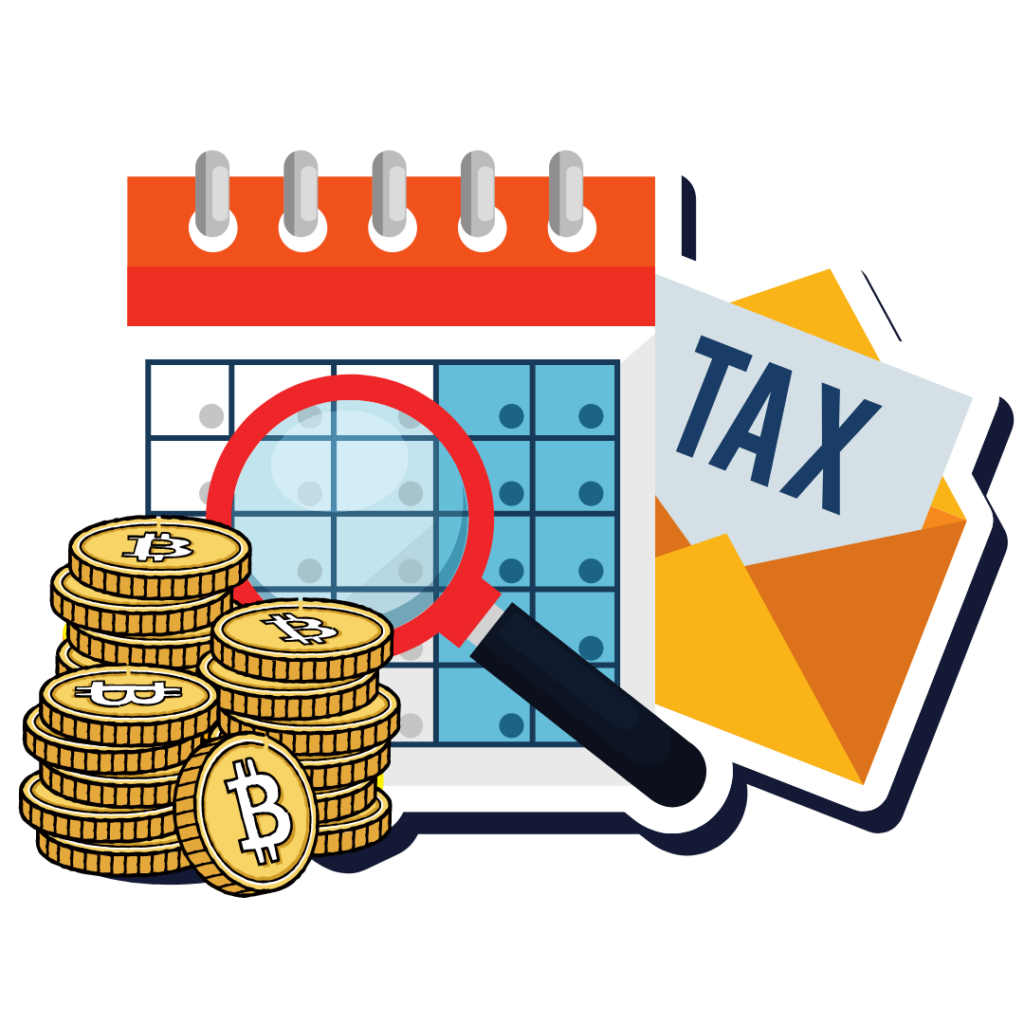Crypto Tax Penalties in India: Complete Guide
What are the crypto tax penalties in India?
Late filing of income tax returns in India incurs penalties and interest charges. Underreporting or misreporting income leads to fines and potential imprisonment. Failure to obtain TAN or deduct/deposit TDS attracts penalties and interest, while late TDS return filing incurs daily fees and penalties.
Struggling with understanding crypto tax penalties in India? You’re not alone. This guide offers clarity on the repercussions of non-compliance and provides practical solutions. Discover how to navigate tax regulations effectively and avoid potential legal pitfalls in India.
How is Crypto Taxed in India?

While the Income Tax Department hasn’t clarified crypto’s status, it’s treated as an asset for tax purposes. In India, crypto taxes involve a 30% tax rate on income from digital asset transfers, plus a 1% Tax Deducted at Source (TDS). The 1% TDS is deducted if transactions exceed ₹10,000 or ₹50,000 within a financial year. Although refundable in case of losses, it complicates frequent trading and poses challenges for DeFi platforms lacking centralized tax reporting.
Gains are calculated by subtracting the selling price from the acquisition cost, taxed at 30%. However, traders can’t offset losses from one cryptocurrency against gains from another.
Check out the in-depth Indian crypto tax guide to learn more.
The 2022 Union Budget introduced these laws, facing criticism for their strictness and lack of flexibility. However, whether you like the regulations or not, you must comply with them. Otherwise, individuals may face potential penalties or even imprisonment in some cases. This brings us to the next section –
Common Crypto Tax Penalties in India

Unlike other countries we covered before, crypto tax penalties in India are more comprehensive and strict. Understanding these penalties is the first step for cryptocurrency enthusiasts, traders, and investors in India to ensure compliance and avoid potential legal issues.
Late Filing Penalties
Late filing of income tax returns can result in penalties and interest charges. For incomes over ₹5,00,000, the penalty can go up to ₹5,000, while for incomes below ₹5,00,000, it’s capped at ₹1,000.
Additionally, interest is levied at 1% per month under section 234B from April 1st until the tax due is paid and under section 234A from the last due date for filing the ITR until the ITR is filed.
In severe cases, especially for large amounts of tax evaded, individuals may face imprisonment from 6 months to 7 years, along with fines.
Underreporting Income Penalties
Individuals who underreport income may face a penalty of 50% of the tax due on the underreported income. In cases of willful tax evasion involving amounts exceeding ₹25 lakhs, imprisonment can range from 6 months to 7 years, along with a fine. For lesser amounts, the term may vary from 3 months to 2 years, along with a fine.
Misreporting Income Penalties
Those found guilty of misreporting crypto income may face a penalty of 200% of the tax due on the misreported income. Similar to underreporting, imprisonment and fines depend on the severity of the offense and the amount of tax evaded.
Failure to obtain a TAN
Failing to obtain a Tax Deduction and Collection Account Number (TAN) when required can result in penalties of up to ₹10,000.
Failure to deduct TDS
Failing to deduct Tax Deducted at Source (TDS) can lead to interest charges at a rate of 1% per month until the TDS is deducted, along with a penalty equal to the amount that was supposed to be deducted as TDS.
Failure to deposit TDS
Failure to deposit TDS attracts interest charges at a rate of 1.5% per month from the date of deduction to the date of deposit. Additionally, individuals may face imprisonment ranging from 3 months to 7 years, plus a fine, depending on the gravity of the offense.
Failure to file a TDS return
Late filing or non-filing of TDS returns can result in late fees of RS200 per day until the TDS return is filed, capped at the amount of TDS due. Penalties, on the other hand, ranging from ₹10,000 to ₹100,000, depending on the delay and non-compliance.
Amended Return Penalty
Penalties for filing an amended return vary based on the timeframe. Within 12 months of the tax year end, the penalty equals 25% of the amount due, along with interest. After 12 months but before 24 months, the penalty increases to 50% of the amount due, along with interest.
These were the most common scenarios where you might incur crypto tax penalties in India. Now that we understand the basics, let’s look at some best practices to avoid them.
How to Avoid Crypto Tax Penalties in India
To steer clear of crypto tax penalties in India, here are some straightforward strategies:
Use Crypto Tax Software: Using specialized crypto tax software, like Bitcoin.Tax, simplifies tracking and reporting cryptocurrency transactions. These platforms can automatically calculate gains, losses, and tax liabilities, ensuring compliance with Indian tax laws. By maintaining detailed transaction records, you can reduce the risk of errors and penalties.
Consult a Tax Professional:
Seek guidance from a qualified tax professional versed in cryptocurrency taxation. These experts offer personalized advice, navigating intricate tax laws. They can assist in proper tax planning, optimizing deductions, and ensuring accurate reporting of crypto-related income. With their help, you can avoid common pitfalls and minimize crypto tax penalties in India.
Given India’s stringent tax laws, there’s limited scope for amending taxes or seeking leniency from authorities. Hence, proactive compliance and thorough tax planning are crucial.
FAQS
Why is crypto tax so high in India?
The high crypto taxes in India reflect the government’s cautious approach towards cryptocurrencies. They think crypto might be risky for the economy, so they’ve set the taxes high. This way, they aim to keep a close watch on how cryptocurrencies are used and encourage people to think carefully before investing in them.
What is 1% TDS in India?
In India, when you sell a cryptocurrency, the buyer has to take out 1% of the selling price as TDS (Tax Deducted at Source) if the sale is more than ₹10,000 or if all your crypto sales add up to over ₹50,000 in a year. This TDS is refundable if you report a loss when filing your yearly taxes.
The main reason for this 1% TDS is to help the government keep track of all the crypto transactions and make sure no one skips paying their taxes. This rule, however, makes it tough for people who trade a lot and don’t really work with DeFi platforms, which don’t have a central body to handle tax stuff and often keep users anonymous.
What is the TDS penalty for crypto?
The TDS penalty for crypto is equal to the amount that was supposed to be deducted as TDS.
What will happen if I don’t pay crypto tax in India?
If you don’t pay crypto tax in India, you could face penalties such as late filing charges, interest on overdue taxes, and potential imprisonment as discussed in this guide. For instance, underreporting income may result in a penalty of 50% of the tax due, along with potential imprisonment ranging from 6 months to 7 years.
How can I escape crypto tax in India?
Attempting to escape crypto tax in India is illegal and can result in severe penalties. It’s essential to comply with tax regulations by accurately reporting crypto transactions and seeking guidance from tax professionals to minimize tax liabilities legally.